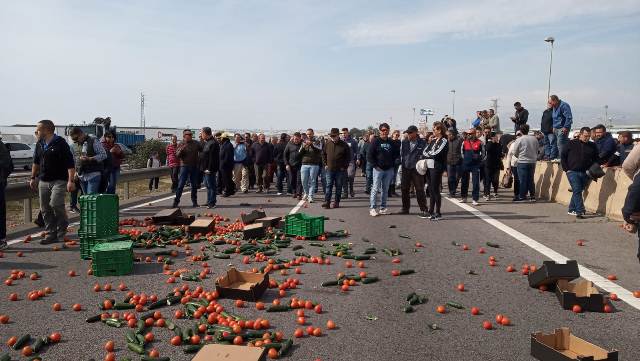The mobilizations of Spanish and European farmers in general due to their economic viability problems are already known by many citizens. And the fact is that low-cost food is going to bury farmers. The problems that less than 2% of the population have are of little importance, even if they manage the vast majority of the territory. What does it matter if there is no generational change, what does it matter if their farms are not viable. At the end of the day, if it is not produced here, they will come from other places and that's it. Prioritizing a cheap meal, yes, yes, it does take into account all the effort and resources behind it is what matters. It is true that the weak link in the chain is the field and that distribution reserves its margin and if the weak link has to be tightened, it is tightened incessantly.
The double standards of citizens and low-cost food
For the average citizen, the important thing is the price. Of course you prefer that it be a local, sustainable, ecological product, with all the guarantees but that it be cheap if not, then welcome tomato from Morocco, oranges from South Africa and asparagus from Peru. And if the Spanish producer loses money and ends up closing, then what are they going to do, but it is important not to pay more for the products.
It is also true that the vast majority of citizens support the rural mobilizations and some of them buy local products at a fair price. It is also true that not all families can afford to buy with sustainability criteria and at the price they should be.
The European Union and its double discourse
The European Union also has the best wishes for the countryside, which is why it reserves a third of its budget for CAP aid. In exchange, they ask for a very noble effort in more sustainability, fewer pesticides, more fallow land, etc. Ahh, and they ask for a little more bureaucracy and to allow them to do commercial exchange with third countries with food to be able to sell more cars and goods. team in general. And if the green agenda has to be delayed, it is done as a gesture of rapprochement and if it can be without touching the agreements or conditions with third countries, the better.
And the big problem and the solution is that farmers can charge fair prices for their products. If it is necessary to reduce bureaucracy and adapt pesticides more gradually, all the better, but the key is to be able to sell at more reasonable, that is, higher, prices. Of course, later we will realize that housing is even more inaccessible and that the rest of consumption suffers and that inflation cannot be stopped, but we must remember that families have never dedicated such a low percentage to food as they do today. .







